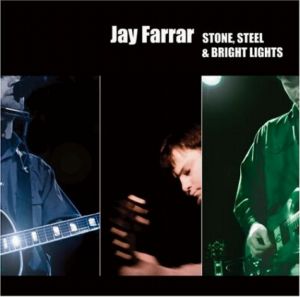
- Format: MP3

Jay Farrar's career after the breakup of Uncle Tupelo has been dogged by two consistent creative gremlins — a seeming inability to write songs with the same strength and emotional impact as his earlier work, and a frequent lack of worthy collaborators. However, anyone who has seen Farrar live since the release of Sebastopol can tell you the man has been in excellent form on-stage, as confident and engaged as he's ever been (occasionally even smiling and talking to the audience, rare events during his Son Volt gigs), and 2004's Stone, Steel & Bright Lights finds him sounding sharp, enthusiastic, and fully committed on a well-chosen set of post-Son Volt compositions recorded in concert. It also finds him working with a group of musicians who are at once sympathetic and forceful enough to add a personality of their own to the songs — in the fall of 2003, Canyon served as Farrar's opening act and backing band, and while their sound dovetails flawlessly with Farrar's melodic sensibility, they sound less like a group of accompanying musicians and more like a band, and the frisson between the players (Farrar included) gives these recordings a much needed spark. The cool fire Farrar and Canyon generate together in front of an audience also helps to camouflage the frontman's other problem — while he's cherry-picked the best material from Sebastopol, ThirdShiftGrottoSlack, and Terroir Blues for this set, the truth is none of these tunes connect quite like "Windfall," "Anodyne," or "Graveyard Shift," and while Farrar and Canyon give the songs their best efforts, this album doesn't fire on all cylinders until they roll into the two-song encore, in which they cover Syd Barrett and Neil Young. Stone, Steel & Bright Lights manages to capture Jay Farrar at his apex as a solo artist, while at the same time reminding fans of why his solo work continues to be so frustrating; thankfully, though, its strengths manage to outweigh its weaknesses by the time the 19 tracks are done.